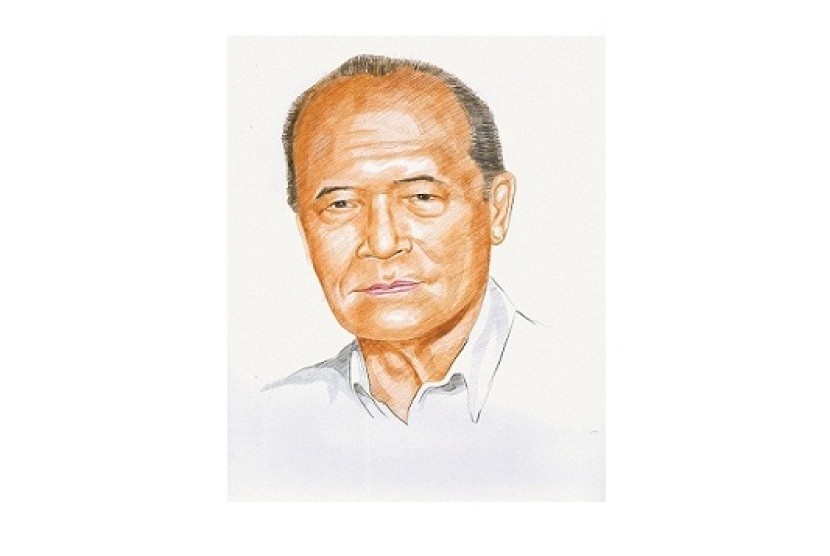REPUBLIKA.CO.ID, By: Ahmad Syafii Maarif
Finally, President Soekarno with the full support of the Army issued a decree of July 5, 1959 to dissolve the Constituent Assembly and declared the return of the Constitution 1945 replaced the Provisional Constitution (UUDS) of 1950. The political constellation changed completely and dramatically. Public were split between supporters and opponents of decree. Indonesia as if wanted to fall apart, because of national principle. On March 20, 1960 an elected parliament was also dissolved, replaced by DPRGR (Mutual Cooperation of House of Representatives) which was determined by the president. Authoritarian rule reached the highest peak. Opponent parties of the decree were not invited into the DPRGR.
Failure to fight Islamic principle in the Constituent Assembly seemed to have a direct impact in the formulation of Muhammadiyah’s statute as a result of Muhammadiyah Congress 34th (on November 1959) in Yogyakarta. During the 47 years, Muhammadiyah never included the principles or basic on its AD. Now in chapter 2, the principle was stated: "The organization based on Islam."
The formulation of intents and purposes unchanged until 1985, when the principle of Pancasila must be included. Faced with the real political situation in Indonesia, in Muhammadiyah Congress 41st (on December 1985) in Surakarta, the principle in chapter 2 of statute changed to: "The organization based on Pancasila."
But to secure the organization identity in the national political situation that did not free, then in the conference, the statutes in chapter 1: 1 formulated that: "This organization named MUHAMMADIYAH, is the Islamic movement and the Da'wa Amar Makruf Nahi Mungkar (enjoin what is right and forbid what is wrong), with aqeedah of Islam and sourced by the Qur'an and Sunnah.”
It was Muhammadiyah’s strategy to save the Islamic principles which were dealing with intolerant power wall. In fact, as noted above, since the era of Ahmad Dahlan until 47 years later, the inclusion of the principle in Muhammadiyah’s statutes was never thought.
It might be in Surakarta Congress which was rather fierce, the statute documents since the beginning could not be assessed, so that the principle issue became a topic of serious debate. As if without principles, Islam of Muhammadiyah was not sturdy. It was the result, if people think it was not based on history. In the Reformation era in the 44th Muhammadiyah Congress in Jakarta (July, 2000), the Islam principles was re-listed, after an absence since 1985. On the way of its history, with or without the principle, the Muhammadiyah identity remained unchanged as advance Islamic movement par excellence, which educating, encouraging and enlightening.
Since the last 10 years through MPM (Community Empowerment Council) Muhammadiyah began working on the realm of agriculture, livestock and fisheries. Under the leadership of the deceased DR (HC) Said Tuhulele (died on June 9, 2015), MPM was increasingly advanced and who knows will be the third major of mainstream in Muhammadiyah in the next few years after education and health.
Muhammadiyah's track record to enforce and implement amar makruf in the form of helping countries in the sphere of education and socio-humanitarian services was already very tested. From day to day the development was more dynamic and expansive with all the obstacles encountered in the working of the above. In this sphere, Muhammadiyah has no match for its partners throughout the Islamic world.
As a country helper, Muhammadiyah was very faithful to his duties, although the state sometimes did not appreciate it. But what about the concept nahi mungkar, as provided in AD 1985? Actually the term of amar makruf nahi mungkar was the terminology of the Qur'an that have been spread among Muhammadiyah since the beginning of the period. However, it was currently inserted into the statutes 1985.
The source used for the concept of amar makruf dan nahi mungkar was the paragraph 104 surah Al 'Imran (3) that was associated with the formation of the organization / community (umma). As for paragraph 41 Surah al-Hajj (22) which was associated with power, to my knowledge, was not used as a reference.
It reads: "Alladzîna in makkannâhum fi 'l-ard al-Salah aqâmû âtawu wa' l-Zakat Amaru bi wa 'l-ma'ruf wa nahaw' ani 'l-munkar wa lillahi' âqibatu 'l-umur / We give them authority in the land, establish prayer and give zakah and enjoin what is right and forbid what is wrong. And to Allah belongs the outcome of [all] matters.”



